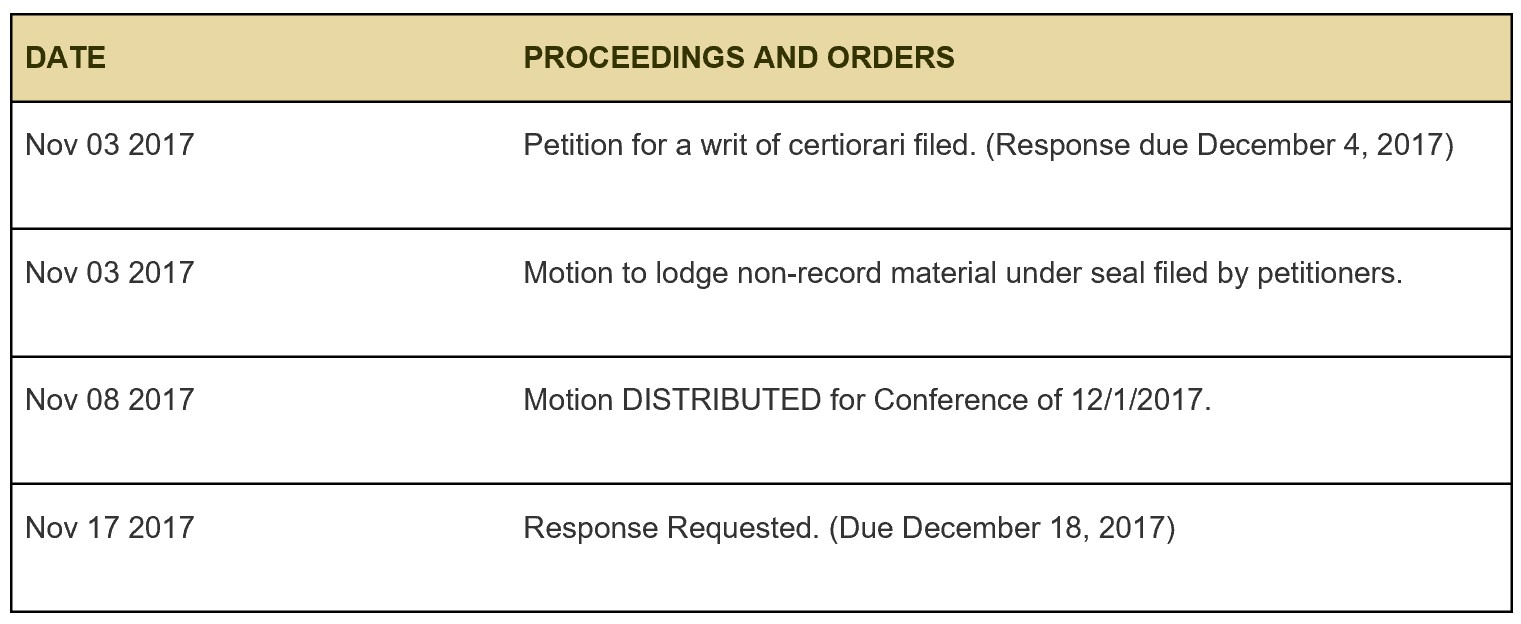
When the U.S. Department of Justice filed a petition with the Supreme Court on November 3, seeking to vacate the D.C. Circuit’s decision that a minor illegal alien (Jane Doe) had a constitutional right to an abortion, there were two responses: the pro-life perspective and the abortion-rights counter.
Pro-life conservatives, myself included, condemned Doe’s American Civil Liberties Union attorneys for misleading the government on the timing of the procedure then spiriting Doe away a day early at 4 a.m. to obtain an abortion. The ACLU reacted with smug satisfaction, portraying government attorneys as inept and the filing a mere attempt to scapegoat the ACLU and placate pro-lifers.
The ACLU’s press release charged that “[u]nder criticism from anti-choice activists for failing to file a timely appeal to the Supreme Court, the Trump administration has taken the extraordinary step of seeking to vacate a lower court ruling protecting reproductive rights. After failing to file a timely appeal, the administration now seeks to blame the American Civil Liberties Union for the administration’s failure to prevent a young unaccompanied immigrant minor from obtaining an abortion.”
Georgetown Law professor Marty Lederman quickly assumed leadership of the ACLU’s smear campaign, authoring a rambling 8,000-word blog post attacking the DOJ. Lederman, a former deputy assistant attorney general in the Obama administration, assailed the DOJ’s “petition” (scare-quotes in original), writing it “is a singularly remarkable document. I’ve never seen anything like it, especially not emanating from the Office of the Solicitor General. In many respects this filing departs, sometimes dramatically, from the justly lauded, traditional standards and practices of that office. Indeed, it is difficult to avoid the conclusion that it is fundamentally a press release, for an audience other than the Justices of the Supreme Court itself.”
Lederman’s blog post contains numerous flaws and is itself internally inconsistent, as detailed at length here and here. Yet the National Law Journal parroted Lederman’s unfounded charges, writing: “The U.S. Justice Department’s request that the Supreme Court consider sanctions against lawyers who advocated for an immigrant teenager at the center of an abortion case has raised questions about the government’s motivation and threatened to jeopardize the reputation of the solicitor’s office before the justices.”
Not So Fast, Crowing Roosters
A recent development, however, challenges the narrative that the DOJ acted politically and improvidently in filing a petition to vacate the D.C. Circuit opinion in the Jane Doe case. Two weeks after the government filed its petition, and more than one week after Lederman’s hit piece, the clerk of the Supreme Court wrote to the ACLU, informing the lead attorney that “the Court has directed this office to request that a response to the petitioner’s motion to lodge non-record material under seal be filed in this case.” The Supreme Court gave the ACLU until December 18 to respond, even though the government’s motion was initially set to be discussed by the justices at their December 1, 2017, conference.

There would be no reason for the Supreme Court to request the ACLU respond to the DOJ’s motion, or to delay decision on the motion beyond the previously scheduled December 1 conference, absent a concern over the ACLU’s conduct or some interest in the substance of the government’s petition for review.
Rather, the justices’ interest in the government’s motion to file documents detailing communications between government counsel and ACLU counsel, both before and after the abortion took place, hints an interest in the merits of the DOJ’s appeal. It also suggests interest that the ACLU changed the date of Doe’s abortion after agreeing (but failing) to inform the government of the timing of the procedure and after learning that the government intended to seek an emergency stay to appeal the constitutional questions.
The Arguments for Erasing DC Circuit Ruling Are Strong
While the Supreme Court may eventually reject the DOJ’s petition to vacate the D.C. Circuit’s holding that unaccompanied minors not legally admitted to the United States have a constitutional right to an abortion, there are two strong reasons supporting vacatur (legal jargon that simply means deleting an opinion and rendering it non-existent).
First, under Supreme Court precedent, vacatur is an appropriate “equitable remedy” when a party is unable to obtain review of an adverse judgment because of the opposing party’s conduct. The facts the government laid out provide solid grounds to justify vacatur given the ACLU’s duplicity and the government’s stated intent to seek a stay.
Vacatur is also appropriate for a second, potentially stronger reason: The D.C. Circuit’s en banc opinion decided an important issue of constitutional law on an expedited basis, with the government forced to brief the issues literally overnight, and without the benefit of oral argument. The full D.C. Circuit’s haste in deciding the appeal in a mere two days also likely partly stemmed from the ACLU’s earlier misrepresentation to the appellate court about the lack of available abortion doctors.
Had the ACLU frankly informed the court of its ability to arrange, overnight, for a quick early-morning abortion, the court would have had more time to fully consider and reflect on the legal arguments presented, without risking, as the ACLU put it, “pushing” Jane Doe’s appointment out until the following week. Under these circumstances, and given the ACLU’s complicity in the D.C. Circuit’s rash decision, vacatur seems the most appropriate remedy.
Whether the Supreme Court agrees won’t be known for some time, but by requesting the ACLU respond to the government’s motion, it seems clear that the DOJ’s petition presents questions serious enough to garner the Supreme Court’s attention.









